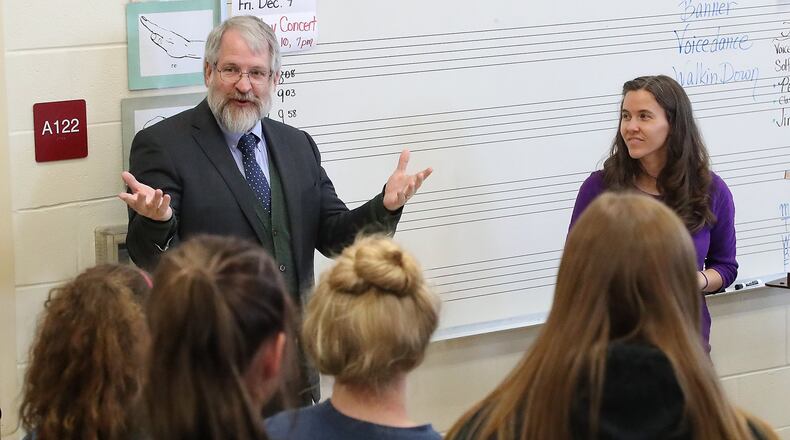But state superintendent Paolo DeMaria this week said he doubts the current takeover law, under House Bill 70, can work. He said by creating a completely different governing structure, via an Academic Distress Commission and a CEO, the system drives a wedge between the schools and the community.
“I think the sheer effort required to overcome the acrimony and dissension that’s created by House Bill 70 has created the conditions where even the best-intentioned individuals are challenged to try to make progress,” DeMaria told the state school board.
Ohio Senate Education Committee Chair Peggy Lehner echoed comments she made last month, saying she thought changes to the law were likely, but not a simple repeal. This week, she said there are “several proposals” being floated.
RECENT: Key state legislator says tweaks likely for takeover law
State Reps. Kent Smith (D-Euclid) and Steve Hambley (R-Brunswick) this week introduced House Bill 127 to stop the state from taking over additional local school districts. Smith echoed many critics of the state takeover model when he said the current system was “poorly designed, rushed into law, and done with zero public input.”
State Reps. Joe Miller (D-Amherst) and Don Jones (R-Freeport) also said they plan to introduce a bill in the coming days to repeal portions of the takeover law.
“Placing these districts under state control has been a disaster,” Miller said. “In each case, the Academic Distress Commission has been unable to work effectively alongside the district’s teachers, school leaders and community at large. After three years, we haven’t seen any evidence that state takeovers improve academic achievement.”
Youngstown, Lorain and East Cleveland are the three districts that have gone under control of Academic Distress Commissions since House Bill 70 passed in 2015. Trotwood-Madison narrowly avoided the same fate last fall.
With Lehner citing “a strong legislative will” to make changes to the takeover system, the question becomes what form that might take. Under state law, DeMaria is required to make recommendations to the legislature on the topic by June 1.
In comments to the state school board, DeMaria said improving struggling school districts requires good leadership, a good, flexible plan based on data, plus buy-in from educators and the community.
“Change is part of it. If people think we can keep doing the same thing and get a different outcome, I think they’re mistaken,” he said. “We have to be committed to change, but we also have to figure out what that change ought to be.”
Lehner acknowledged that she and other legislators misread the rushed process in 2015, thinking Youngstown leaders they spoke to about House Bill 70 had broad backing.
“Since that time I think we have all come to realize how very much the local community was shut out of the process … and without that support, the process is almost doomed for failure,” she said. “And we’ve seen that play itself out now in a second community in Lorain, where the local community is just fighting it every step of the way.”
But Lehner has often brought the debate back to the fact that too many students are not making academic progress or not graduating. She said the state has to do something to help or push those schools.
“I don’t think we want to abolish 70 altogether, because I think it has value — if (schools) don’t do some of the things you need to do, this is what could happen,” Lehner said. “Unless we can create some other stick (as a consequence), we may not get communities that are desperately in need of reform to act.”
About the Author

